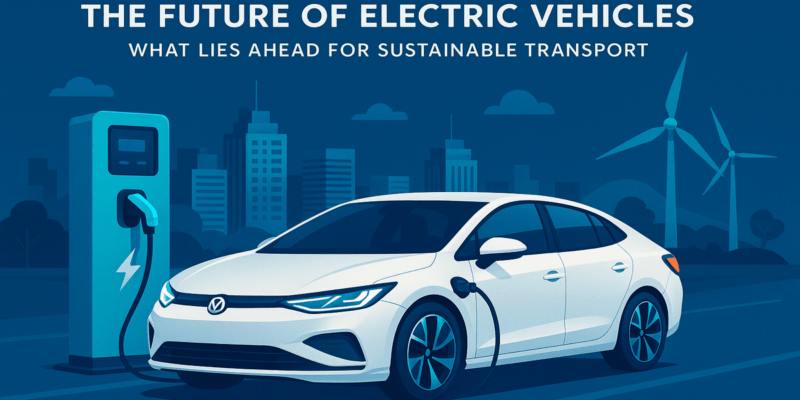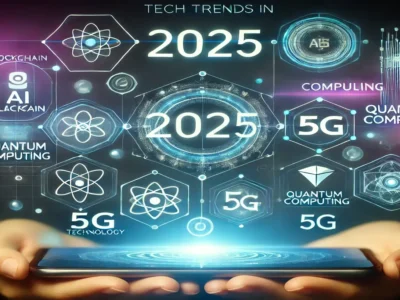The future of electric vehicles (EVs) is here, and it’s evolving fast. What started as a niche market for eco-conscious drivers is now taking center stage in the world of transportation. Every year, the EV industry takes major leaps forward, with technological innovations, growing infrastructure, and more options than ever before.
As a result, electric vehicles are shaping the way we think about driving, sustainability, and our planet’s future. But what does the future of electric vehicles really look like?
EV Market Updates: The Shift Is Happening
The electric vehicle market is experiencing a rapid transformation. In 2025, global sales of EVs are expected to increase exponentially. This shift is powered by several factors: government incentives, stricter environmental regulations, and of course, growing consumer demand for greener alternatives.
Governments around the world are making it clear they support the shift to electric. Many countries have set ambitious goals to phase out gasoline and diesel cars in favor of fully electric fleets. For instance, the UK plans to ban the sale of new petrol and diesel cars by 2030.
This kind of policy is creating a sense of urgency for automakers to develop and release new electric models that appeal to a wider audience.
On the consumer side, electric vehicles have become more accessible. With battery technology improving and production costs decreasing, EVs are no longer just for the wealthy. More affordable models are flooding the market, making electric vehicles an attractive option for a broader range of buyers.
Tesla: The Pioneering Force in EVs
When talking about the future of electric vehicles, it’s impossible to ignore Tesla. As the undisputed leader in the electric car industry, Tesla continues to drive innovation forward. Elon Musk’s company has revolutionized what an electric car can be, combining cutting-edge technology, long-range capabilities, and sleek design into one powerful package.
Tesla’s impact on the industry has been profound. They were the first to bring electric vehicles into the mainstream, proving that EVs could offer the same performance and luxury as traditional gas-powered cars.
The release of models like the Model S, Model 3, Model X, and Model Y has pushed the entire auto industry toward electric. With advancements in battery efficiency and Tesla’s self-driving technology, they remain a key player in shaping the future of electric vehicles.
However, it’s not just about Tesla anymore. The growing competition in the EV space is spurring innovation and increasing choices for consumers.
More traditional automakers are getting serious about electric vehicles, from the Volkswagen ID.4 to the Chevrolet Bolt and the Ford Mustang Mach-E. Even luxury brands like Porsche with their Taycan are stepping up their game. This diversity in offerings is making it easier for buyers to find an electric car that fits their style, budget, and needs.
Growing Trends in Sustainable Transport
While electric vehicles are the future of sustainable transport, they are just one part of the bigger picture. As we look toward the future, there are several trends emerging that will shape the landscape of transportation as a whole.
Battery Advancements: One of the most exciting developments in EV technology is the constant improvement in battery efficiency. New battery technologies, such as solid-state batteries, are promising to significantly boost energy density and shorten charging times. These advancements will make EVs even more practical for everyday use, with longer ranges and faster charging stations.
Charging Infrastructure Expansion: For many potential EV buyers, range anxiety remains a concern. But the expansion of charging networks is helping to ease this worry. Companies and governments are investing heavily in building more charging stations, especially in urban areas and along major highways. This growth in infrastructure will make owning an EV more convenient and accessible.
Autonomous Driving: EVs are also driving the future of autonomous driving. Tesla, again leading the charge, is already rolling out vehicles with semi-autonomous features. In the future, fully autonomous EVs could reshape how we use transportation, reducing the need for personal car ownership and allowing passengers to sit back and relax during their commute.
One of the most promising innovations in the energy and transportation sectors is Vehicle-to-Grid (V2G) technology. This cutting-edge solution allows electric vehicles (EVs) to function as mobile energy storage units, sending electricity back to the grid during peak demand. As a result, EVs contribute not only to sustainability but also to grid stability.
However, as V2G systems become more connected and data-driven, understanding how to protect personal data online becomes crucial. These technologies rely on constant communication between vehicles, charging stations, and grid operators, often transmitting sensitive user and vehicle data. To fully benefit from V2G without compromising privacy, it’s important for users and providers alike to implement strong cybersecurity measures and data protection protocols.
By combining the benefits of V2G technology with an awareness of how to protect personal data online, we can move toward a future that is both energy-efficient and secure.
Sustainability Beyond the Car: The future of electric vehicles goes hand in hand with a broader focus on sustainability. Manufacturers are increasingly using recycled materials, and some are even looking at ways to make EV batteries more recyclable. The focus isn’t just on what’s under the hood; it’s about creating a circular economy for all components of the vehicle, from the body to the battery.
Conclusion
The future of electric vehicles is undeniably bright. With innovations in battery technology, charging infrastructure, and autonomous features, electric cars are set to become an integral part of sustainable transport. Companies like Tesla continue to lead the charge, while traditional automakers are stepping up their game to offer more options to consumers.
Electric vehicles are no longer just a trend; they represent the future of mobility, one that is cleaner, greener, and smarter. As technology continues to evolve, electric cars will become more efficient, more affordable, and more accessible to people around the world. So, buckle up. The road ahead is electric!













